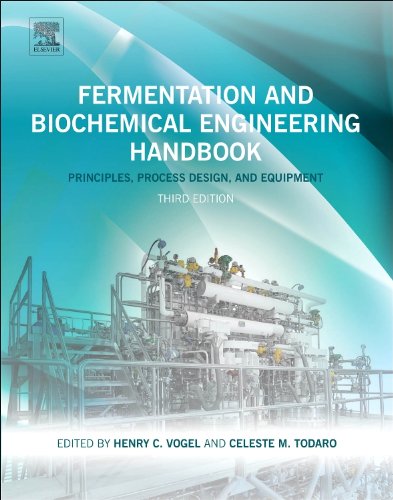

Most ebook files are in PDF format, so you can easily read them using various software such as Foxit Reader or directly on the Google Chrome browser.
Some ebook files are released by publishers in other formats such as .awz, .mobi, .epub, .fb2, etc. You may need to install specific software to read these formats on mobile/PC, such as Calibre.
Please read the tutorial at this link: https://ebookbell.com/faq
We offer FREE conversion to the popular formats you request; however, this may take some time. Therefore, right after payment, please email us, and we will try to provide the service as quickly as possible.
For some exceptional file formats or broken links (if any), please refrain from opening any disputes. Instead, email us first, and we will try to assist within a maximum of 6 hours.
EbookBell Team

0.0
0 reviewsA complete reference for fermentation engineers engaged in commercial chemical and pharmaceutical production, Fermentation and Biochemical Engineering Handbook emphasizes the operation, development and design of manufacturing processes that use fermentation, separation and purification techniques. Contributing authors from companies such as Merck, Eli Lilly, Amgen and Bristol-Myers Squibb highlight the practical aspects of the processes-data collection, scale-up parameters, equipment selection, troubleshooting, and more. They also provide relevant perspectives for the different industry sectors utilizing fermentation techniques, including chemical, pharmaceutical, food, and biofuels.
New material in the third edition covers topics relevant to modern recombinant cell fermentation, mammalian cell culture, and biorefinery, ensuring that the book will remain applicable around the globe. It uniquely demonstrates the relationships between the synthetic processes for small molecules such as active ingredients, drugs and chemicals, and the biotechnology of protein, vaccine, hormone, and antibiotic production. This major revision also includes new material on membrane pervaporation technologies for biofuels and nanofiltration, and recent developments in instrumentation such as optical-based dissolved oxygen probes, capacitance-based culture viability probes, and in situ real-time fermentation monitoring with wireless technology. It addresses topical environmental considerations, including the use of new (bio)technologies to treat and utilize waste streams and produce renewable energy from wastewaters. Options for bioremediation are also explained.